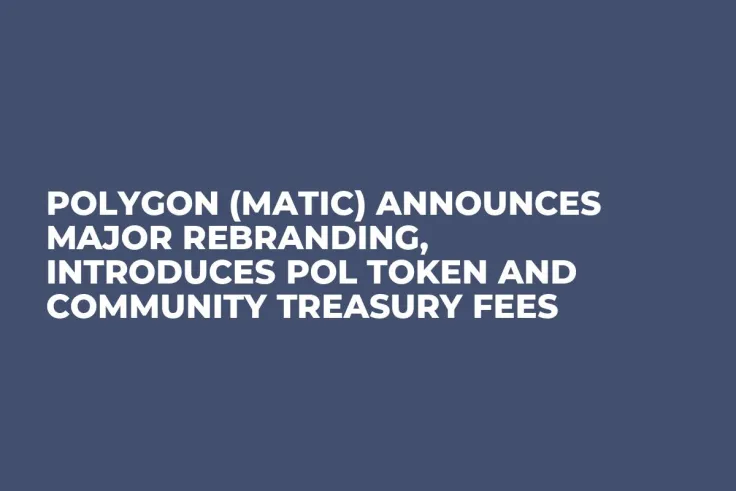
Holders of the core native cryptocurrency on Polygon (MATIC) network will be able to earn for their contribution to protecting network integrity in a novel way. Should the proposal be approved, MATIC token will be replaced by POL in a 1:1 swap.
Polygon might drop MATIC for "hyperproductive" token POL: Details
Polygon (MATIC) shared the details of the second phase of its hotly anticipated upgrade, Polygon 2.0. It changes the economic incentives behind the proof-of-stake (PoS) consensus on the network.
1/ Today, the next technical proposal of Polygon 2.0 is unveiled:
— Polygon (Labs) (@0xPolygonLabs) July 13, 2023
POL, the upgraded token of the Polygon protocol! 💫
POL is the next generation native token, designed to secure, align and grow the Polygon ecosystem.
Watch the video to get an idea how cool it is, then 🧵 pic.twitter.com/Gn7KcHpWEY
With this upgrade, the network might receive an entirely new token, dubbed POL. Its stakers will be able to simultaneously participate in validating transactions on a plethora of Polygon's blockchains, including all Polygon Supernets, zkEVM, Validium and so on.
Also, for the first time in Polygon's history, the network will be able to offer various validators' roles to POL stakers. As such, various incentive programs will be available to dedicated POL customers.
POL is promoted by Polygon Labs as a third-generation token that is a natural result of evolution of key network assets:
Bitcoin's BTC, although important and successful, is an unproductive token — its holders can not participate in the protocol and be rewarded for that. Ethereum's ETH is a productive token — holders can become validators of the Ethereum blockchain and get ETH rewards and fees. POL is the 3rd generation of native assets - a hyperproductive token.
Advertisement
Once this proposal goes live, MATIC holders will be invited to swap their assets to POL in a 1:1 ratio: Polygon's design will not have two governance and staking assets coexisting with one other.
DeFi vet on POL: "Best sustainable way to fund blockchain projects"
Also, the upgrade includes community treasury fees. One percent of POL emissions will be distributed between ecosystem initiatives, while the other 1% will go to validator rewards.
Seasoned DeFi developer and researcher Mikko Ohtamaa stresses that this might be the only viable way of creating a sustainable ecosystem for modern cryptocurrency projects.
Polygon proposes 1% community treasury fee on transactions.
— Mikko Ohtamaa (@moo9000) July 13, 2023
Community treasury funded by revenue is the best sustainable way to fund blockchain projects, or any open source projects.
While donation-based foundations like Apache Foundation have been around forever, we have seen… https://t.co/iMcuRB0fnZ?from=article-links
As covered by U.Today previously, a potential token swap is a part of the Polygon 2.0 upgrade roadmap.
It is designed to completely rewrite the technical basis of Polygon (MATIC) and adjust it to the needs of the DeFi era.

 Yuri Molchan
Yuri Molchan Godfrey Benjamin
Godfrey Benjamin Dan Burgin
Dan Burgin Arman Shirinyan
Arman Shirinyan Alex Dovbnya
Alex Dovbnya